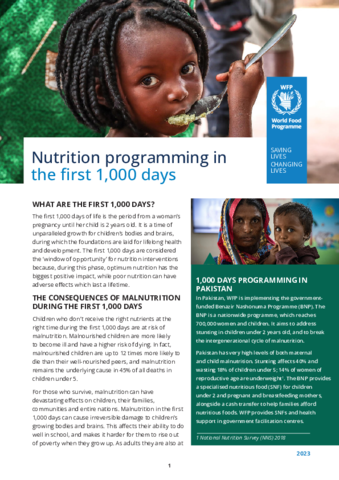
WFP's nutrition programming during these first 1,000 days, such as the Benazir Nashonuma Programme (BNP) in Pakistan, targets pregnant and breastfeeding women and children under two to combat stunting and malnutrition. Initiatives include providing specialized nutritious foods (SNF) and cash transfers to improve diet quality. The BNP addresses Pakistan's high malnutrition rates, aiming to break the intergenerational cycle of malnutrition.
Investment in nutrition during this crucial period is shown to deliver significant returns, enhancing human capital, reducing healthcare costs, and supporting national development. WFP's comprehensive approach involves direct nutrition interventions, education, and support to promote healthy practices and resilience in vulnerable populations. Examples from Uganda and Mozambique illustrate the diverse strategies employed, such as NutriCash in Uganda and the Gender Transformative Nutrition-Sensitive (GTNS) project in Mozambique, both aimed at improving nutrition and empowering women. These programs underscore the importance of integrated efforts to enhance nutrition and break the cycle of malnutrition globally.
